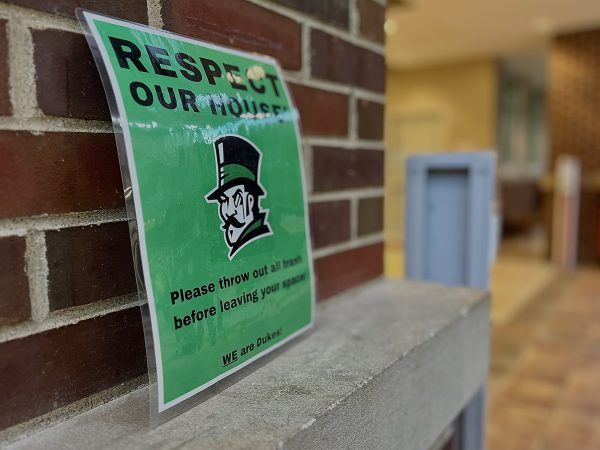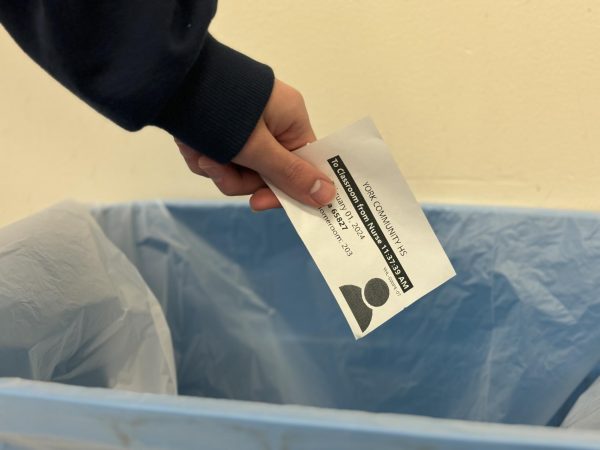York reflects on Illinois law for AP exams
A student taking a practice test to prepare for the ACT.
As students are selecting their classes for next year, it is important for students to consider the changes that Illinois public colleges and universities have made in how they accept advanced placement scores.
Previously, Illinois colleges and universities had the freedom to choose the AP scores they accepted. AP scores are given on a five-point scale, one being the lowest and five being the highest score one could achieve. However, in the fall of 2016, with the new law passed by Governor Rauner earlier this year, all schools must give credit for threes.
The law also states that each school has the right to decide if the score will give them credit for a major requirement, a general education requirement or just an elective. This part of the law is commonly misunderstood amongst high school and college students.
For example, according to The Daily Illini, a student newspaper at the University of Illinois Urbana-Champaign, a university student who receives a three on an AP Calculus AB exam may not get credit for Calculus 1, but rather would get credit for a general education requirement. While if students receive a higher score of a four or five, they may get credit for Calculus 1. Therefore, it could be useful if they were pursuing a degree outside of mathematics areas. Otherwise, they would need to retake the class.
While some students see this law as a positive change, other students believe it takes away a certain level of competition within that school.
Junior Sam Flesch said, “The law damages the school’s reputation to a certain degree because they are accepting scores of a lower standard.”
Others are also concerned that students will be skipping courses and moving on to others that they are unprepared for.
Junior Ellie Cockrell said, “It could be bad if college kids start not taking classes they need to take to have the basic understanding down for the next class and to overall be able to succeed in college.”
The teachers at York also have their own worries about the potential issues with the law. Teachers who teach AP courses have to follow the specific curriculum given to them by the college board. Teachers always have had to do this, but now it will occur more often.
AP Government teacher, Lindsey DiTomosso said, “More kids will definitely take AP classes, so as a teacher it concerns me about having to teach a dictated curriculum from the college board to more classes.”
Other teachers are not as concerned about this.
An AP government teacher, Ken Dowdy said, “As a political science major, I teach more content in my course than is taught in a first year class for political science in college.”
Nonetheless, some students hope that the positive effects will outweigh the negatives. Ideally, more students will be encouraged to go to college and have a somewhat easier time in doing so due to finances.
“Overall, though, I think it’s a positive change because students can save money on classes they would have taken in high school,” Flesch said.
Teachers at York are excited to see the changes that will happen here. Yet, the financial stress that will be taken off of students and families is an undeniably positive change.
“The biggest thing is that it will save parents money, and that is a huge positive,” said Dowdy.
Senior Bailey Stearns agrees that the law will be good for students.
“I think the law is great because a lot of York students specifically go to Illinois colleges and by accepting a larger range of scores it helps save money on classes,” Stearns said.
In high school and at York specifically, students are beginning to feel better about attending college.
Senior Erin Muckian said, “I’m considering going to an Illinois college, and I think that Illinois schools accepting 3s on the AP test will be beneficial to a lot of people because you can get more college credit.”

Kylie Travers is a senior at York. This year, she is Co-Editor-In-Chief of the York-hi. Other than her extremely passionate love of writing and reading...

















